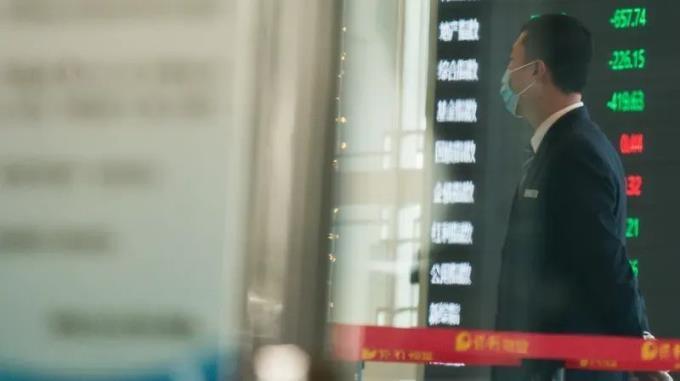
In the past year, the IPO "closure of supply" has been generated in the upstream VC/PE end of the ecological chain; it is from financing to investing from financing to investing in its conjoined relationship.
Text 丨 Zhu Changzheng's Mainland China Stock Market's new shares (IPO) "closed -off supply" in the past year, which has already produced symptoms on the upstream VC/PE end of the ecological chain: more equity investment institutions forcibly asking startups to repurchase shares, even evenAt the expense of the use of legal means, the strong retirement also brought a negative feedback that caused the new investment project of the equity market.The most typical example is that recently, Shenzhen Innovation Investment Group Co., Ltd. (referred to as "Shenzhen Venture Capital") intensively initiated a repurchase lawsuit to the investing company.Public information shows that since 2023, Shenzhen Investment Investment has issued more than 40 invitations to bidding bidding for legal services for litigation. The matters have been triggered by the investment company, but failed to fulfill the repurchase obligation.The specific reason is that most of the investors have failed to go public as appointments.As a representative of the VC institution of the domestic state -owned assets department, Shenzhen Investment Investment has issued a litigation repurchase to such a high -density of the investing enterprise, which is rare for many years.And it is not a case, and it will cause "extrusion" infection, so that the industry observer said that "can retreat and retreat," has become the main theme of most GP (ordinary partner) work this year.
The good intentions of the IPO gate closing the gate cannot be equal to the suspension of the suspension of new shares and the stability of the stock market, but more investors in the A -share market still believe that this is one of the necessary conditions for the stock market to stop falling.Faced with the sluggish market conditions, their demands have received responses from the regulators.According to the data of Wind (Wind) information system, only 52 companies in the first half of this year completed the issuance and listing, a decrease of nearly three -quarters year -on -year; the total amount of funds raised fell by 84%year -on -year.With 299 IPOs in the audit project, the two Shanghai and Shenzhen exchanges have almost suspended the acceptance and review of new issuance applications, and did not restore until late June.That is to say, in the first half of the year, the Chinese A -share IPO gate was tightened sharply. After a large number of enterprises were withdrawn, the "dammed lake" water level on the trading market dropped sharply, and the queue phenomenon finally relieved.
Unfortunately, a series of short -term market rescue measures, including strict control of new shares, did not bring the popularity of the stock market and the return of funds.Flipped, last Friday still hovered below 2,900 points, and 3,000 spells were shrouded.From the initial quota system, to the subsequent approval and approval system, and to the current registration system, the transformation path of the first -level A -share market is in trial and error. Administrative approval did not gradually relax until in recent years.The power of the company "from a single government securities regulatory agency, decentralized to exchanges and market intermediaries.In the process of hot transactions in the stock market or the rise in the market, even if the IPO reaches two or three hundred a year, it is easy to be eliminated by the secondary market. When the stock market market is faint or the downturn as this year, investors' resentment or the resentment orThe taunt will be aimed at any negative factors they think -quantitative transactions, transformation and securities (securities firms borrowed stocks through securities finance companies for customers to make a shortage of securities trading), new shares issuance and re -financing, non -dividend, and major shareholders to reduce their holdings of violations of regulations., Corporate financial fraud, etc., IPOs can easily become regulatory methods and signs the flags.In the venture capital industry, the A -share IPO "interruption block" means that the difficulty of exit of investment institutions such as VC/PE has increased suddenly, and this is quickly transmitted to its subsequent investment and fundraising.
According to the statistics of the Qingke Research Center, there are 9 VC/PE institutions that have harvested 3 or more IPOs in the first half of this year, while in the first half of 2023 and 2022, 42 and 58 were respectively.The total book value of the listed enterprise with the IPO with the IPO in half a year (calculated at the issue price) of the listed enterprise was 63.635 billion yuan, a year -on -year decrease of 66.6%, and a decrease of 92.1%from the same period in 2021.This shows that the exit value and the level of income have a serious shrinkage.
China has risen in innovation and entrepreneurship in the past few years, and emerging enterprises have emerged in the fields of new retail, new energy vehicles, power batteries, chips, artificial intelligence and large models. This is naturally inseparable from VC/PE;Now, when people discover the decrease in the number of new unicorn beasts in China, it is also aware of the dilemma of VC/PE withdrawal.Soul Revolution: From financing to investing in a large number of enterprises to queue up IPOs, it has always been the characteristic landscape of the Chinese stock market. It originated from the "cost -free" advantage of stock funding compared to debt rights (theoretically).After the premium, the P / E ratio of the issuance of the issuance of reaching a hundred times, people are even more rushing. Start -ups, local platforms, speculators, and fakes who need funds are rushing into this wealth magic channel.Lin Yixiang, a senior person and chairman of Tianxiang Investment Consulting Company, said: "The history of the Chinese stock market for more than 30 years is a history of the theme of raising funds around stock issuance.
The description of"is objective and contemplative. The explicit or implication of this stock market has derived the other characteristics of A shares: the administrative leadership of the issuance of approval, especially before the implementation of the registration system; and before the registration system; and before the registration system; and before the registration system; and before the registration system; and before the registration system; and before the registration system; and before the registration system,The deviation of the market system and its inefficient.
IPO under the leadership of administrative forces, considering performance or growth is only a technical need. Managers can also allow stock issuance to serve a specific target, such as state -owned enterprises from distress, poverty alleviation, scientific and technological innovation, break through the "card neck" technology technologyIt can also exclude certain industries and enterprises, such as real estate, retail, liquor, and finance.As a result, the audit standards are changing, and the review scale is loose and tight, which undoubtedly increases the instability and unpredictability of the first -level market.In addition, the number of IPOs and the fundraising amount is listed as the main item of the score list.In contrast, the implementation of the long -term institutional construction of the stock market, the implementation of the "three public" principles of openness, fairness and fairness, the survival of the fittest (delisting), and the protection of investors' rights and interests have not received the same attention.The market positioning that focuses on financing also makes illegal crimes may not be punished. Financial fraud, insider trading, letter illegal regulations, and IPO public relations corruption once prevailed.Since the beginning of this year, the leaders of the regulatory authorities have replaced it, and after the introduction of a series of regulatory documents for the new "National Nine Articles" (the State Council on further promoting the healthy development of the capital market), the A -share market is strictly managed and strictly supervised and the high pressure of "zero tolerance" "zero tolerance"The situation is prominent.What is even more influential is that the academic community has made a strong voice of "the Chinese capital market must shift from the financing market to the investment market and give full play to the function of social wealth management."
The 20 major documents announced by the Communist Party of China last month proposed "to improve the capital market function of coordination of investment and financing", which responded to this appeal to a certain extent.Financing positioning is the right to survive in the Chinese stock market, and it is also the root cause of the continuous accumulation and intensification of the internal contradictions in the stock market. When the current stock market's multiple contradictions are sharp and opposed, it advocates the shift from financing to investment, which is a soul revolution in this market.It will first impact the ingrained control and administrative approval thinking.Taking the IPO as an example, scholars' investigations on the issuance review committee found that even under a strict accountability system, the strict review of the issuance committee could not prevent the company's performance frequently changed after listing (Shi Donghui, 2024).This shows that it is necessary to improve the quality and capital market efficiency of listed companies through administrative supervision. To a large extent, it is only the administrative universal illusion derived from the control path.
If the true "National Nine Articles" say, let the market play a decisive role in the allocation of resources, respect the market rules, maximize the benefits and optimization of the efficiency of market rules, market prices, and market competition, then the securities regulatory authorities willAt the focus of work, you must engage in the pre -approval and transfer of supervision intervention and post -inspection and punishment.As for what kind of company chooses to go public and when and what price is listed, it is just a matter of negotiation between issuers, underwriters and exchanges, that is, to give the right to the market.This soul revolution will inevitably be accompanied by regulatory behavior and the reversal of political performance, so as to strictly deal with the financial fraud that investors generally criticize.Weilinxin; overall market efficiency, investor protection, etc. will be placed on the same or more important position as the number of issuers, fundraising, and total market value.When financial fraud is facing huge fines and criminal liability, when the delisting is smooth and unobstructed under the complete rules, when the "shell resources" no longer become a hot -fried object, the IPO will return to the normal state.Investors in the stock market are bold.
The IPO ebb is not reached through the administrative methods such as closing the gate, strict access, "persuasion", and restricting specific industries, but to allow market forces to seek dynamic balance in the contradiction between supply and demand.In this way, regulators, issuers, underwriters, small and medium investors and VC/PE can be transcended from the rise and fall of the market and cyclical fluctuations. They do not have to blame each other and accusations with each other.This soul revolution no longer splits the connection between financing and investment, and returns the right to listing to the market. The operator needs to be determined.
This article only represents the author's point of view the author of the author is economist, [Changping Investment Research] Xu Jin, the editor -in -chief of the main manager




